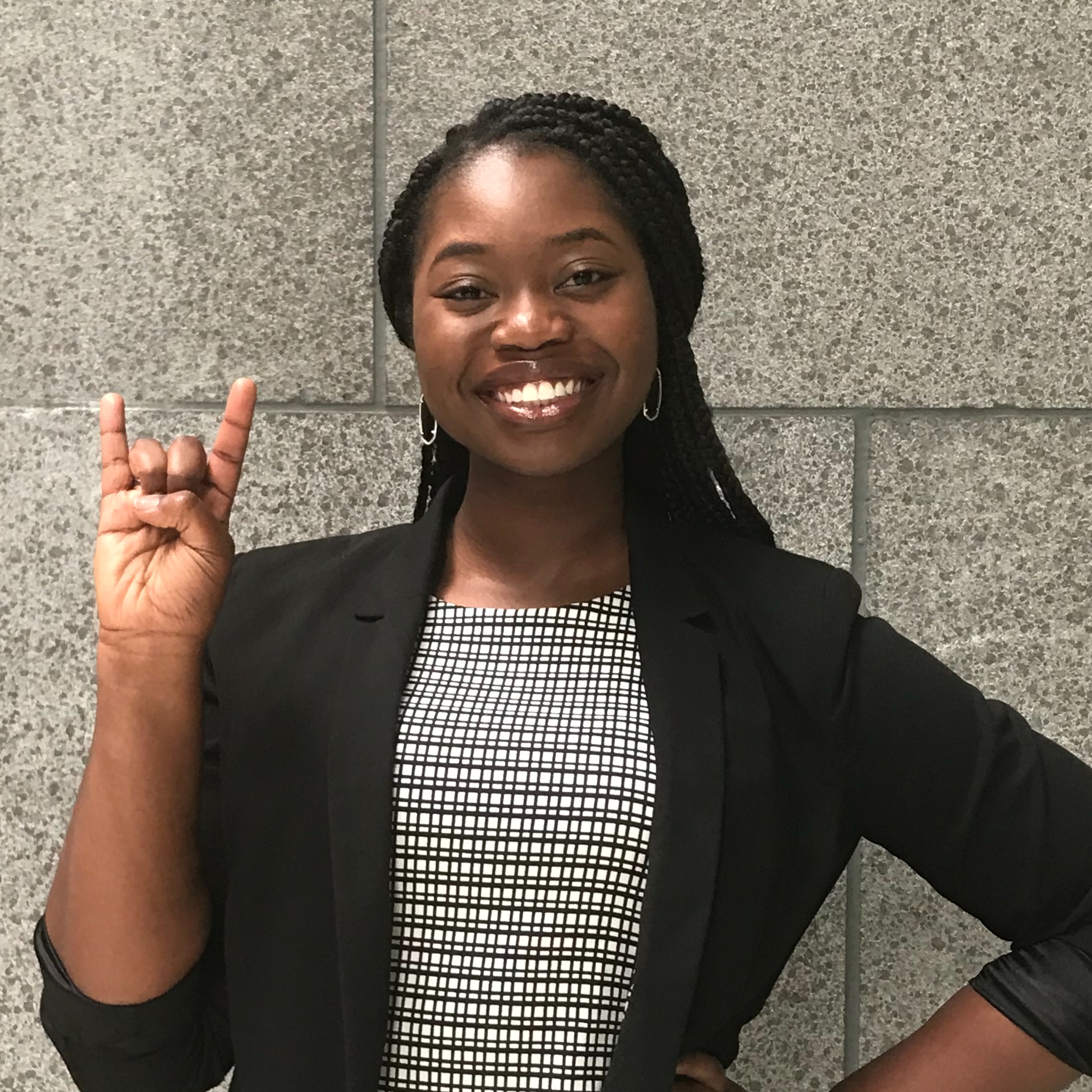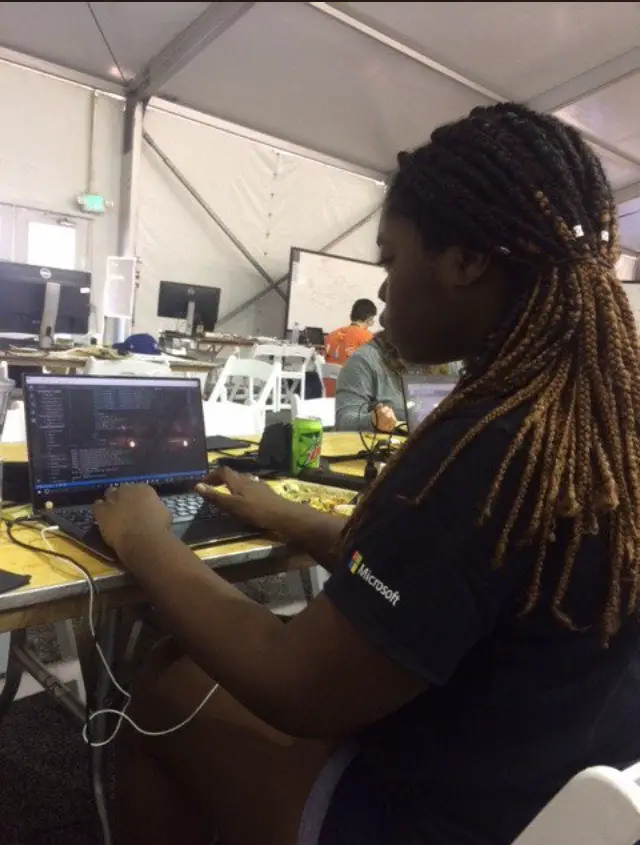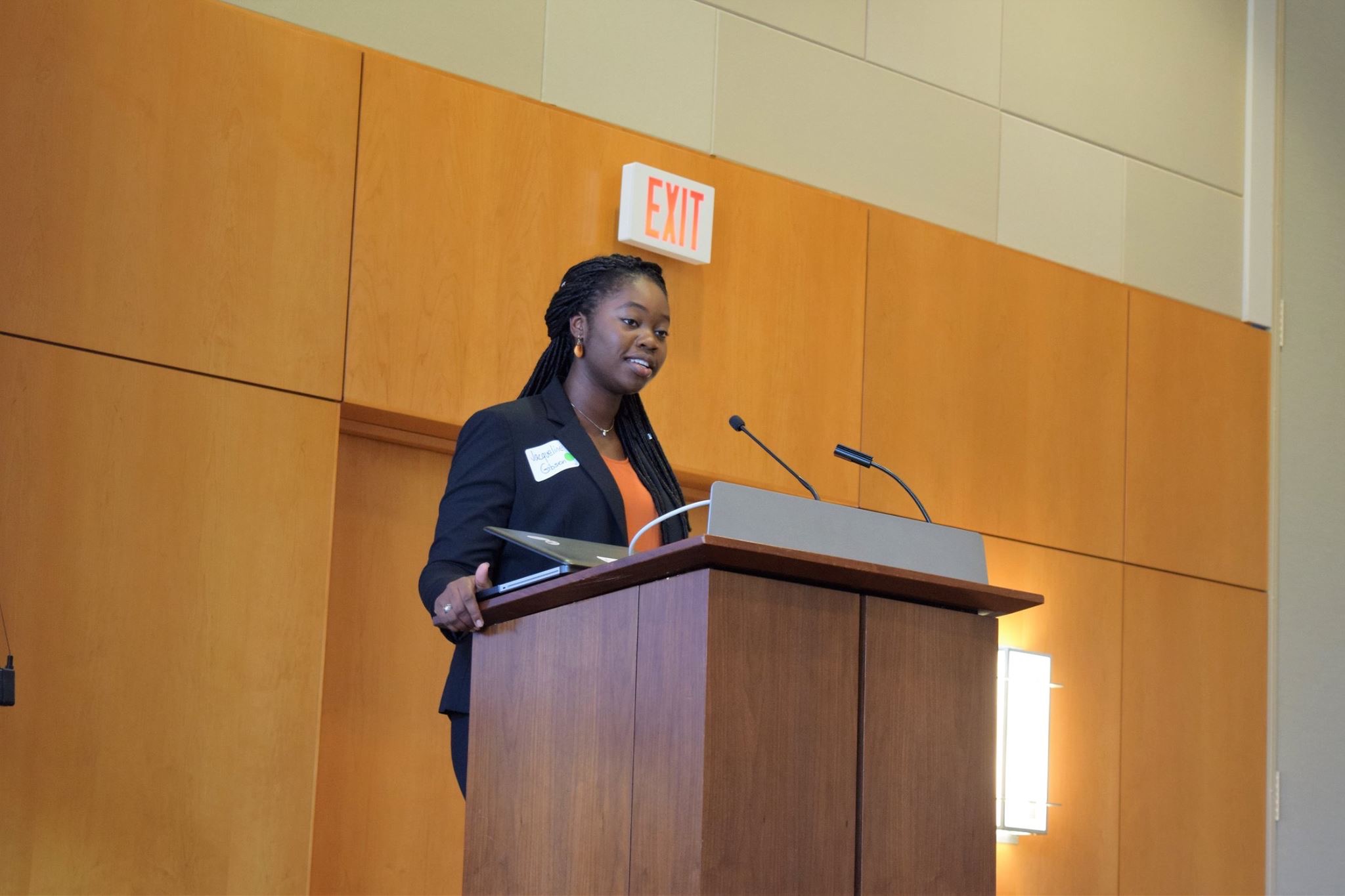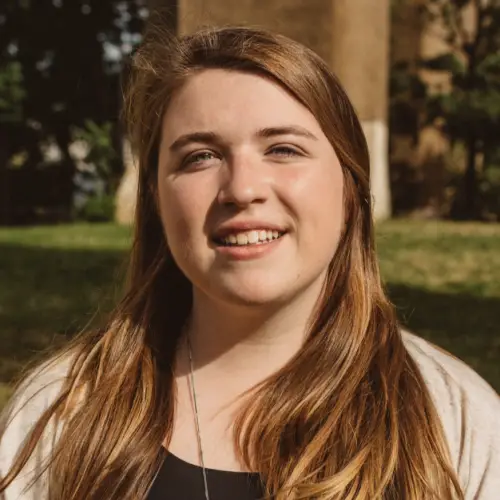Jacqueline Gibson, a dual major from University of Texas (UT), is passionate about leveraging technology for the good of society. A double major in computer science and African & African diaspora studies, Gibson is using her education to develop and work towards combating some of society’s biggest problems — like the need to make technologies accessible to all individuals.
The co-founder of UT’s Association of Black Computer Scientist Gibson has connected her dedication and passion for technology to being a mentor for other underrepresented groups seeking careers in computing.
Engineering and technology careers are elitist professions that are characteristically jobs that Asian and white males take. With this lack of diversity, it is harder for other people who are passionate and seeking a career in this industry to attain a job. Many times, advocating and working hard to make sure that diversity is increased proves to be a difficult task.

As a student, advocate for diversity and mentor, Gibson’s thirst to connect knowledge to the greater good of society is seen through her active involvement both within her college and outside the community.
Set to study abroad in Ghana to support and expand her educational studies for her second major, Gibson has advocated for the last three years in and outside her college community for diversity.
Gillian Farnan: You mentioned when we first talked that you were passionate about leveraging technology for the social good. What does that statement mean to you?
Jacqueline Gibson: I was drawn to computer science because I loved problem-solving. I wanted to be able to use my technical abilities to work towards solving some of society’s biggest problems.
I think too many engineers and programmers just create because they can. To me, leveraging technology for social good means conscientiously engineering and actively working to apply your skills and make the world a better place.
GF: What do you mean when you say that you believe technology is a great equalizer in society?
JG: I think that technology has the [capacity] to level the playing field, amplifying the potential of each individual and allowing them to perform at the highest level. For example, in educational technology, you see how different software can give students the personalized assistance they need so they can succeed academically.
Similarly, regarding accessibility design, there are mobile apps and hardware that allow those with limited to no sight to more easily navigate the world and maintain a level of independence. I think there are countless products that really embody the good that technology can do in our society and the potential it has to help us sidestep some of the barriers placed in front of us by life’s circumstance or by society.
GF: How does what you do now in your college career help start the journey to creating this leverage?
JG: I’m truly passionate about access to technology, combating the digital divide and empowering underrepresented groups [in] technology. One way I work towards this goal is through outreach in the community.
I have volunteered with Introduce a Girl to Engineering Day, Hour of Code and First Bytes (Bytes in the University of Texas’ Computer Science Department’s summer camp for juniors and seniors in high school) exposing younger girls to the field of computer science.
I also volunteer with a local nonprofit called Changing Expectations, that work to introduce students and teachers in Title I schools about computer science and programming. I am also working with Dr. Alison Norma to create an educational series for the computer science faculty about issues of diversity and inclusion.
GF: How have your studies helped you to think of and take these actions?
JG: My studies have helped me narrow down my specific area of passion underneath the broad umbrellas of “technology” and “computer science.” From a year of research, I realized I have a passion for accessibility design and development and this is where my investment in technology that combats social inequality began.
With my minor in information studies, I was able to explore Human-Computer Interaction, where I have fostered a love of analyzing systems, the way we interact with them and how we can improve these interactions to make our technology more effective.
GF: Are there any personal experiences that you have had that ignited your passions?
JG: When I first came to UT, I quickly realized my existence was seen as a disruption. One of two Black freshmen in my classes, I was unprepared for how detrimental this isolation would be. Faculty would question if I was lost while I waited in the hallways and students would question if I “meant to sign up” for technical workshops.
I dealt with [a kind of] crippling imposter syndrome and constantly felt as if I needed to prove myself and justify my presence. I began to question if computer science was the field for me and considered dropping the major; I was tired [of] feeling like an intruder in my own department and feeling like my voice was [being] silenced.
I reflected and decided to fight, realizing that the issue was not that I did not belong but that my voice — and others — were not being heard. It was this conclusion that served as a catalyst for the Association of Black Computer Scientists (ABCS).
The organization works with undergraduates in the program to have academic, personal and professional support throughout their time on Forty Acres. It has been amazing to see the organization grow and know that the students that have come after me will have a better experience than I did.
GF: Are there any awards/leadership positions/organizations that have influenced you to feel this way? What have you learned from your involvement?
JG: At first I was a Member at Large of the Senate of College Councils, then [I served] as a Committee Co-Chair. Through my involvement with Senate, I learned what it truly means to be an advocate for others and how to create university-wide change. This year, I served on the President’s Student Advisory Committee, where I worked closely with the Office of the President to address major issues affecting the Longhorn Community.
Both experiences demonstrated the power of students where we have the ability to work with the administration to better the experiences of our fellow students across campus. Many people view college as a time to learn and soak up as much as they can, but I think it is also the perfect time to work and start taking an active [position] in improving our communities.
GF: What do you hope to come out of your efforts?
JG: I hope that we will see the tech field become not only diverse, but inclusive. Not enough companies are focusing on re-evaluating their current environments so that all people, regardless of background, race or ability, feel welcomed in these spaces. Professionally, I hope to not only create systems that benefit all users but also work to instate higher standards of accountability throughout the industry.

I would like to utilize machine learning to create tools that empower people from underrepresented backgrounds working to actively combat the societal barriers that prevent them from succeeding at the same rates as their more privileged peers.
Outside of the industry, I plan to continue actively engaging the mentorship for underrepresented students interested in computer science and to enact more community programs aimed at helping them succeed.
GF: Do you have any advice for anyone who has the same passions as yourself?
JG: As Helen Keller once said, “I am only one, but I am still one. I cannot do everything, but I still can do something.” To me, this quote embodies what it means to serve others. You have to realize that although you are only one person, you still have the ability to make a change.
You might not be able to solve every problem, but this shouldn’t stop you from working to make a difference. Your opinions and experiences are valuable and it is time for people to listen. Start advocating on behalf of yourself and others, but most importantly, work to amplify the voices of those who do not yet have a seat at the table.

















